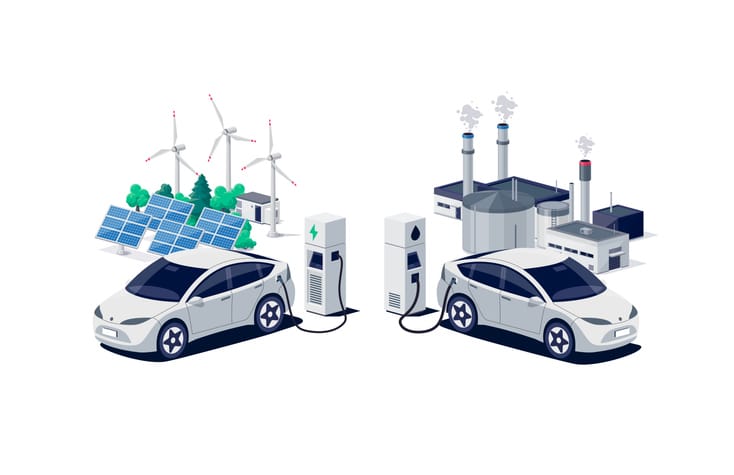Horsepower vs. Fuel Efficiency: The Great Electric vs. Gas Debate

The rumble of a gas engine revving, the surge of adrenaline as horsepower translates to speed – these are sensations deeply ingrained in the car culture. But in the face of climate change and soaring fuel costs, a new breed of silent, smooth-gliding electric vehicles is challenging the reign of gasoline. The debate between electric and gas cars boils down to two fundamental aspects: horsepower and fuel efficiency. Today, we delve into this clash of titans, exploring the strengths and weaknesses of each camp.
Horsepower: The Thrill of the Ride
For many car enthusiasts, horsepower is the undisputed king. It's the raw muscle that catapults us off the line, devours hills with ease, and leaves other vehicles in the dust. Gas-powered engines excel in this domain. Their combustion chambers can unleash a symphony of power, with V8s and turbos cranking out of horsepower. This translates to exhilarating acceleration, leaving electric vehicles in their wake, especially at higher speeds.
However, electric cars have a secret weapon: instant torque. Unlike gas engines that have to build up revs, electric motors deliver full torque from the get-go. This translates to lightning-fast launches, leaving gas-powered rivals momentarily lagging behind. While they may not reach the peak horsepower of some gas guzzlers, electric cars offer a different kind of thrill – the punchy, immediate rush of torque that pins you to your seat.
Fuel Efficiency: The Wallet and the Planet
But raw power comes at a cost. Gas engines are notorious guzzlers, their tailpipes spewing greenhouse gases and draining wallets at the pump. In today's environmentally conscious world, fuel efficiency reigns supreme. Electric vehicles, fueled by electrons instead of hydrocarbons, are the undisputed champions of green driving. They produce zero emissions, meaning they contribute nothing to air pollution or climate change. Additionally, their energy conversion is much more efficient than gas engines, resulting in significantly lower operating costs per mile.
However, the infrastructure for electric vehicles is still in its infancy. Range anxiety, the fear of running out of juice before reaching your destination, remains a concern for many. Charging times can also be lengthy, especially compared to the quick refueling of a gas car. Furthermore, the production of electric vehicles, particularly with large batteries, carries its own environmental footprint.
The Verdict: A Balancing Act
So, who wins the horsepower vs. fuel efficiency debate? The answer, like most things in life, is nuanced. There's no clear-cut victor, just a trade-off between adrenaline-pumping power and environmentally conscious efficiency.
For those who prioritize the visceral thrill of the open road and the roar of an engine, gas-powered cars still hold sway. But for those who value clean driving, lower running costs, and a guilt-free conscience, electric vehicles are the undeniable choice.
Ultimately, the decision comes down to your individual priorities and needs. Do you live in a city with ample charging stations or do you regularly embark on long road trips? Do you crave the rush of acceleration or do you value a quiet, low-maintenance ride? Whichever side you choose, remember that the automotive landscape is rapidly evolving. Whether powered by pistons or electrons, the future of cars is sure to be exciting, sustainable, and full of surprises.
Beyond the Binary:
Beyond the electric vs. gas debate, several alternative options are emerging. Hydrogen fuel cell vehicles offer the long range of gas cars with the zero emissions of electric vehicles, but infrastructure is even scarcer. Hybrids and plug-in hybrids bridge the gap, offering both electric and gas-powered options for versatility. Ultimately, the choice is not just between electric and gas, but between a variety of options that align with your driving needs and environmental values.
As the debate continues, the lines between gas and electric are blurring. Electric vehicles are getting faster and more powerful, while gas engines are becoming cleaner and more efficient. Perhaps one day, the choice won't be between horsepower and fuel efficiency, but simply between driving the car that best suits your needs and gets you where you need to go in a way that's good for both you and the planet.
